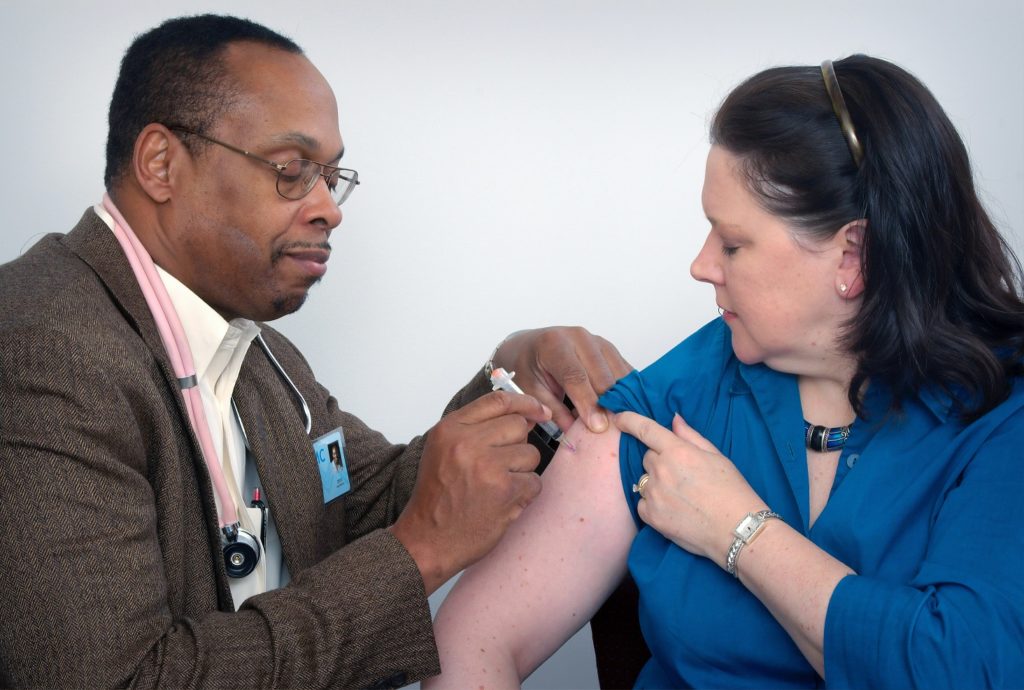The Covid-19 vaccine produced by Pfizer-BioNTech causes an allergic reaction in recipients more than ten times more often than reactions to the flu vaccine, according to a study carried out for the Centers for Disease Control and Prevention (CDC) in the US.
The study describes 21 cases of people suffering anaphylaxis – a severe and potentially life threatening allergic reaction – among the first 1.9 million doses of the Pfizer vaccine administered.
That represents an incidence of 11.1 cases of anaphylaxis per one million doses of vaccine. A tiny number, but still almost ten times as many as the reactions to the ordinary flu vaccine, which has an incidence of 1.3 per million doses.
“The anaphylaxis rate for Covid-19 vaccines may seem high compared to flu vaccines, but I want to reassure you this is still a rare outcome,” said Dr Nancy Messonier, director of the National Center for Immunization and Respiratory Diseases at the CDC, who is in charge of the response to the Covid-19 pandemic.
The median age of those who suffered an attack was 40 years, and most experienced symptoms of anaphylaxis within 15 minutes of the vaccine being administered.
Of the 21 cases, 17 had a history of allergic reactions, including drugs, food and insect stings. No geographic correlation was found, and the vaccines used came from a variety of batches.
And she offered some recommendations: anyone who has a reaction to the first dose should not receive the second dose; anyone with a past history of a reaction to a vaccine, or a history of anaphylaxis from any cause, should be closely observed for 30 minutes after the vaccine is administered.
Taking questions later, Dr Messonier made it clear that the advice to be on the lookout for possible adverse reactions also applies to the Moderna vaccine, which has just been approved for use in Europe.
“Right now the known and potential benefits of the current Covid-19 vaccines outweigh the known and potential risks,” she said.
“That doesn’t mean, however, that we couldn’t see potential serious health events in the future. The CDC and the FDA (the US Food and Drug Administration) are rigorously reviewing all serious adverse event reports with clinicians to determine if they possibly could be associated with vaccination. I also think it’s important to remember that many adverse events following immunisation are coincidental. That means that while a health event may happen after getting vaccinated, the vaccine isn’t always the cause of it.”
Alan Hope
The Brussels Times

